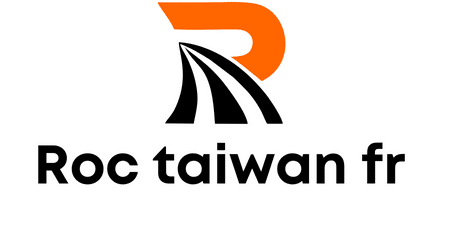How to Choose the Best Dietary Fibers for a Dog with Irregular Bowel Movements?

Your dog’s health is paramount, and part of maintaining that health is ensuring they have regular bowel movements. However, dogs, like humans, can sometimes experience digestive issues. These issues could range from constipation to diarrhea, and everything in between which can disrupt their overall health. One way to help improve your dog’s digestive health is by incorporating the right amount of dietary fibers into their food. But how do you choose the best fiber for your dog’s diet? This article will help you navigate this often overlooked aspect of pet health and provide insight into the best fiber-rich foods to include in your dog’s diet.
Understanding the Importance of Fiber in a Dog’s Diet
Before we delve into the best sources of fiber for your dog, it is crucial to understand the role of fiber in a dog’s diet. Dietary fiber serves different functions in the digestive system of dogs, and its benefits are manifold. While fiber is not a mandatory requirement in a dog’s diet, incorporating it can significantly improve your pet’s health.
A découvrir également : How to Introduce a Puppy to Water for Safe Swimming Experiences?
High fiber diets can aid in weight management, improve colon health, help in controlling diabetes, and are especially beneficial in combating irregular bowel movements. Fiber adds bulk to the diet, thereby enabling smooth and regular bowel movements. It also helps in maintaining the right water balance in the intestine, preventing both constipation and diarrhea.
Identifying Signs of Irregular Bowel Movements in Dogs
Recognizing the signs of irregular bowel movements in your dog is the first step towards improving their digestive health. Dogs with irregular bowel movements may exhibit symptoms such as straining during defecation, passing hard or dry stools, or diarrhea. Other signs include decreased appetite, lethargy, and abdominal discomfort.
Sujet a lire : What’s the Best Way to Manage Your Dog’s Exercise Routine After Spay/Neuter Surgery?
If your dog is frequently experiencing these symptoms, it could be due to a lack of fiber in their diet. However, it’s always best to consult with a veterinarian first to rule out any other potential health issues. Once it is established that diet modification is needed, you can then consider including high-fiber foods in your dog’s diet.
Choosing High Fiber Foods For Your Dog’s Diet
Not all fibers are created equal, and when it comes to dogs, certain types of fiber are more beneficial than others. The best fiber sources for dogs include whole grains, fruits, vegetables, and legumes. These foods provide a balance of both soluble and insoluble fiber, both of which play a critical role in digestive health.
Whole grains such as brown rice, oatmeal, and barley are excellent sources of fiber for dogs. Fruits and vegetables like apples, carrots, and peas also contain a good amount of fiber. Legumes such as beans and lentils are other high-fiber options to consider.
When incorporating these foods into your dog’s diet, it’s important to start slowly to prevent any sudden changes in their digestive system. Gradually increase the amount of fiber over a few weeks, and always ensure your pet has access to plenty of fresh water, as fiber works best when it absorbs water.
Tailored Fiber Diets and Commercial High Fiber Dog Foods
If your dog has a chronic condition like constipation or diarrhea, a tailored fiber diet may be the best option. In this case, you would work closely with your veterinarian to create a diet plan that addresses your pet’s specific needs.
Commercial high fiber dog foods are another option. Many pet food companies offer specially formulated high-fiber diets that can help with irregular bowel movements. Look for foods that have a higher fiber content, typically around 6-10%. Be sure to cross-check with your vet before transitioning your dog to a new diet.
The Role of Water in Your Dog’s Digestive Health
Along with fiber, sufficient water intake is crucial for your dog’s digestive health. Water will help soften the food in the digestive system and allow for smooth passage of stool. A lack of adequate water can lead to constipation, while too much water can cause diarrhea.
Ensure your dog has easy access to fresh and clean water at all times. If your dog isn’t drinking enough water, try adding a splash of broth in their water bowl to make it more enticing, and remember to take them for regular walks to promote good digestion.
In conclusion, choosing the best dietary fibers for your dog’s irregular bowel movements requires understanding the role of fiber, recognizing the signs of irregular bowel movements, opting for healthy high-fiber food options, considering tailored diets or commercial high-fiber dog foods, and ensuring sufficient water intake. As always, it is best to consult with your vet before making any significant changes to your dog’s diet. With the right approach, you can set your pet on the path to better digestive health.
Additional Fiber Supplements for Dogs with Digestive Issues
Beyond just dietary changes, you might want to consider supplementing your dog’s diet with additional fiber supplements. These supplements can be beneficial for dogs that have chronic constipation, diarrhea, or other digestive issues that aren’t being managed through changes in diet alone.
Fiber supplements for dogs come in various forms including powders, capsules, chewable tablets, and even fiber-enriched dog treats. They contain soluble and insoluble fibers from various sources like psyllium husk, flaxseed, beet pulp, and pumpkin. These supplements work by adding bulk to your dog’s stool and aiding in its smooth passage through the digestive system.
When using fiber supplements, be sure to start with a small dose and increase gradually while closely monitoring your dog’s bowel movements. Also, ensure that your dog is drinking enough water, as fiber supplements can absorb water from the body, potentially leading to dehydration if not properly managed.
Before starting any supplement regimen, consult with your veterinarian to verify the suitability for your dog, as well as to get the appropriate dosage. Remember, while supplements can aid in managing digestive issues, they should not replace a balanced, fiber-rich diet.
Can Too Much Fiber Be Harmful to Dogs?
While fiber can be beneficial for your dog’s digestive health, too much fiber can also cause problems. Excessive levels of fiber in a dog’s diet can lead to bloating, gas, and diarrhea. This is because fiber, particularly insoluble fiber, is not fully digested and can add excessive bulk to your dog’s stool.
Excess fiber can also interfere with the absorption of certain nutrients in the digestive system. A study published in the Journal of Animal Science found that dogs fed a high-fiber diet had lower absorption of minerals like calcium, phosphorus, and magnesium.
Thus, it is crucial to strike a balance when it comes to adding fiber to your dog’s diet. The exact amount of fiber required would depend on your dog’s size, breed, age, and overall health condition. In general, most dogs do well on a diet containing 2-4% fiber, but dogs with certain health conditions might need more. Always consult with your veterinarian before making significant adjustments to your dog’s diet.
In Conclusion
Regular bowel movements are a crucial aspect of your dog’s overall health and well-being. Incorporating a balanced amount of high-fiber foods and potentially adding fiber supplements into your dog’s diet can significantly improve their digestive health. However, remember that while fiber is essential, too much of it can also lead to complications.
Always ensure that your dog is adequately hydrated, as water is just as important as fiber in promoting a healthy digestive system. Consulting with a veterinarian is recommended before making any significant changes to your dog’s diet or introducing fiber supplements.
With the right approach and guidance from your vet, you can successfully manage your dog’s irregular bowel movements and contribute to their long-term health and happiness. Remember, a healthy dog makes for a happy pet owner!
